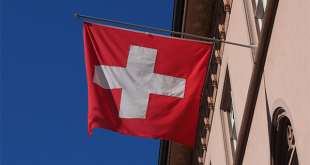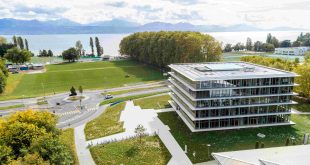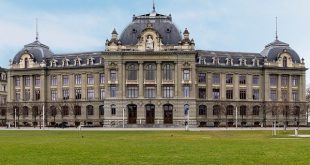There are a few reasons why one might want to do a PhD. Mostly, it’s for a career advancement but also to conduct research and deepen your knowledge on a subject you’re passionate about. And Switzerland is one of those countries which had made a huge investment in the field of education. PhD’s candidates have access to some of the most prestigious institutions with cutting-edge research facilities. And they do so while studying in a stimulating environment with a high standard of living. You’re considering Switzerland for your PhD? Here are some crucial details to help you find the best program for you.
Table of Contents
Is it worth doing a PhD in Switzerland?
There are several reasons why you should study in Switzerland for your PhD. Starting by the reputation of excellence of the country, whose institutions and graduates have contributed to some of the most groundbreaking research programs in the world. Graduates from universities in Switzerland are highly skilled, innovative, creative, and the country counts the highest number of Nobel Prize per capita.
Another reason to choose this country for a PhD’s degree is that among all the qualifications you can earn at Swiss universities, PhDs and MBA are the most popular ones. In other words, you can’t be wrong in considering this country to pursue research or further studies. And being a global hub for finance and business, career options are numerous once you’ve completed your studies in Switzerland.
Last but not least, you have the choice between 3 official languages of instruction: French, German, and Italian, depending on the canton you’re in. But there are also more and more programs in English, especially at graduate and postgraduate levels.
How long is a PhD in Switzerland?
Switzerland being a signatory of the Bologna process, a PhD in the country is then a third-cycle qualification. It’s also the highest level of degree you can achieve in the country. And it will take between 3 and 7 years to complete it, depending on whether you pursue a traditional PhD or a structured one.
A traditional PhD tends to be shorter while a structured PhD, which involves additional training, may take longer. The other difference between the 2 types of PhD is that a general PhD takes place in one university, where the student is under the supervision of one or more academic experts.
The structured PhD, on the other hand, takes place at more than one institution. And it can even involve a collaboration between different institution types such as cantonal universities and universities of applied sciences.
Moreover, the academic year in Switzerland runs from September to May. It comprises 2 semesters, from September to December and from February to May/June. However, PhD research may continue beyond these periods, while training only take place during semester sessions.
Supervision and assessment
Like in any PhD programs, students will have at least an academic supervisor to oversee their work. But in some cases, there might be a second or more supervisors involved, especially in the case of structured PhD.
Each supervisor will then have a specific role in the student’s project, but all of them will provide overall mentoring, guidance and support along the research process.
The PhD program always results to the writing and submission of a doctoral thesis at the end of your research. The thesis must bring up a considerable yet unique contribution to the student’s field of specialization, something that is worth a publication and that other scholars and researchers can use.
The candidate then will be assessed through a defense, in a public setting. The assessment is made by a panel of experts that includes at least one external examiner, from outside the student’s university.
In the case of a structured PhD, some smaller assessments will take place along the way. This may be a coursework and some exams related to training modules. They will then need to undertake these exams in order to continue in their program. However, these small-scale assessments don’t affect the final grade for the PhD degree.
How to apply for a PhD in Switzerland?
As long as you have chosen your program and university for your PhD in Switzerland, you can easily navigate the application process.
So how does it work? First and foremost, you need to browse available PhD positions. For that you have 2 options: visiting the websites of your university of interest or visiting portals that bring together any available PhD positions.
It’s common practice also to get in touch with a professor or a research group whose work has sparked your interest. You can then ask if there is any opportunity for you to do your PhD with them.
Entry requirements
In the case you register for an existing position, requirements include a personal statement or cover letter, an academic CV, your references and any other file your university requires.
If you plan to conduct research on a topic you’ve provided, you need to add a research proposal to the list of documents. This dissertation should give details regarding the purpose of your project, its scope and the outcome you expect to get out of it.
Furthermore, students who apply to a structured PhD might not need an initial research proposal. This is because the student’s project has to be put in place during the first year of the PhD.
Read also about the requirements to study in Switzerland.
PhD in Switzerland in English
PhD programs in Switzerland are either in the university’s canton language or in English. However, the possibility of a PhD program to be in English also depends greatly on the type of subject.
That’s why you’re more likely to get a degree in English with highly international subjects such as business, engineering or science. In this case, you’ll have to provide the classic paperwork proving your proficiency in English (IELTS, TOEFL…) depending on your university.
PhD fees
The cost to study a PhD in Switzerland is paid either for the entirety of the program or per term as it applies at some universities. Typically, Swiss universities are free to set up their own fees.
Some may cost as low as €182 while some will cost more than €6,000 for the entirety of the course. If you’re given a price per semester, you then have to multiply it by 6 to get the total cost of a 3-year study program.
Moreover, you need to consider other smaller fees for registration, examination and student union fees. But these costs will remain very low thanks to generous support from the Swiss government for higher education.
Of course, you’ll need to prepare for your living cost in Switzerland as an international student.
How much is a PhD salary in Switzerland?
In some cases, PhD opportunities are advertised as paid research positions. Students then receive a regular salary as an employee of their university. Moreover, they are exempt from paying the study cost above.
They also have the right to additional benefits such as a holiday leave. In return, they assist with undergraduate teaching and take care of some administrative tasks. This is a quite common practice at universities but a lot less at universities of applied sciences.
PhD candidates receive on average a salary of CHF 2,000 to CHF 6,000 per month. The amount they earn depends on their level of experience. Beginners can get roughly CHF 48,000 per year while the most experienced candidate can get around CHF 60,000 per year.
Lastly, PhD students in medicine or exact sciences are more likely to get a better payment than those studying humanities or arts for example.
Can you work while doing a PhD in Switzerland?
To fund their PhD, international students in Switzerland can work up to 15 hours per week on school days and unlimited hours during holiday periods. For that, their potential employer needs to apply for a work permit on their behalf.
They also need to contact the Swiss Immigration Authority to check about their rights to work and study in Switzerland. It’s important to keep in mind that PhD students can work only 6 months after the beginning of their program.
And lastly, they must inform the immigration authorities whenever they undertake any employment in Switzerland.
Find out also how to work in Switzerland after graduation.
PhD in Switzerland with a scholarship
For students who don’t perceive any salary, the other source of funding they can look for is with the Swiss Federal Commission for Scholarships (FCS). This commission grants every year some scholarships based on merit, as well as a research scholarship.
The latter is available at research universities, federal institutes of technology and universities of applied sciences throughout Switzerland. Any international students can apply for this funding as long as they meet the academic qualifications and provide a convincing enough PhD work proposal
Moreover, this scholarship covers the candidate’s PhD fees and living cost in Switzerland.




 Aljawaz Your guide to study abroad
Aljawaz Your guide to study abroad
















Can enrollment be given to a student in a phD program withless than 3.0Gpa? If yes, which universities in Switzerland does that?
It depends on the university. To find out, please consult the websites of the universities you’re interested in. Here’s our article on Switzerland’s top universities, where you can visit their official websites.